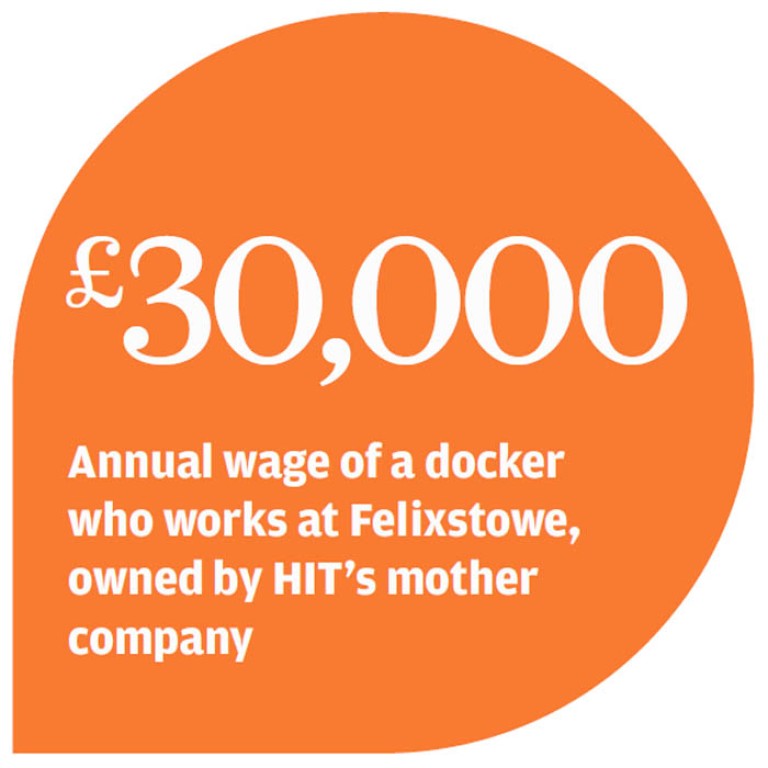
British union to discuss support for Hong Kong's striking dockers
Harsh conditions of city's striking dock workers appal their British counterparts
An international transport trade union representing 4.5 million workers worldwide has organised a meeting to discuss action in support of the Hong Kong dockers' strike.

This came after ITF president Paddy Crumlin flew in yesterday to visit the dockers at the Hongkong International Terminal (HIT) in Kwai Tsing.
Britain's biggest union group, Unite the Union, also issued statements expressing its solidarity with the city's striking workers on Tuesday.
Copies from some 20 British dock committees were sent to the dockers as well as HIT managing director Gerry Yim Lui-fai.
The union's move was symbolic as Britain's largest port, Felixstowe, is owned by HIT's mother company, Hutchison Port Holdings.
But while Hong Kong's dockers complained about their extreme work conditions, their British counterparts in Felixstowe, Suffolk, had it much better.
"No one works more than four hours [without a break]," said one dock worker, Philip, who declined to give his full name as he was directly employed by Hutchison - Felixstowe does not engage contractors.
"I don't think any [British] worker would accept being asked to work 12 hours without rest. I'm not surprised our Hong Kong brothers are saying the same."
Video: No bathrooms and 24-hour shifts – the life of a dock workhorse
Britain is known for its labour protection laws, under which workers have to be granted at least a 20-minute break for every six hours of work.
And while HIT was slammed for the Hong Kong dockers' poor wages because it relied on contractors which competed among themselves based on price, its mother company was giving its British staff decent wages.
"[I earn] around £30,000 a year. We have a very good work relationship with the management," said Philip. British workers earned on average £26,500 last year.
Referring to his Hong Kong counterparts' harsh working conditions, Philip said something had to be done to change it as safety was of utmost importance on the job.
"It's a difficult job, and a hard job to do," he said. "I believe it's the responsibility of the company to ensure that you're working comfortably."
